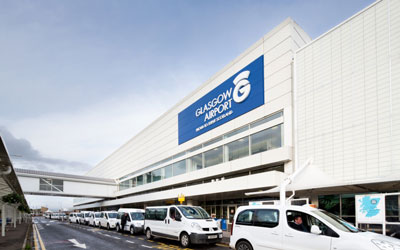Glasgow Airport announces passenger numbers for July 2012
- Like
- Digg
- Del
- Tumblr
- VKontakte
- Buffer
- Love This
- Odnoklassniki
- Meneame
- Blogger
- Amazon
- Yahoo Mail
- Gmail
- AOL
- Newsvine
- HackerNews
- Evernote
- MySpace
- Mail.ru
- Viadeo
- Line
- Comments
- Yummly
- SMS
- Viber
- Telegram
- Subscribe
- Skype
- Facebook Messenger
- Kakao
- LiveJournal
- Yammer
- Edgar
- Fintel
- Mix
- Instapaper
- Copy Link
Posted: 14 August 2012 | Glasgow Airport
Almost 790,000 people travelled through Glasgow Airport in July 2012…


Almost 790,000 people travelled through Glasgow Airport in July 2012 meaning passenger traffic during the month was broadly in line with the same period last year.
Demand for long haul and EU scheduled travel continued to rise, with the number of passengers using these services up nearly 20% on July 2011. Emirates, Jet2.com and easyJet all reported year-on-year growth for the month.
Overall passenger traffic was down 0.5% against July 2011 as a result of the school holidays starting in late June this year instead of early July. This shortfall equates to 3,700 passengers.
Over the course of June and July, the two main summer months, Glasgow Airport handled more than 1.5 million passengers. This represents an increase of nearly 30,000 passengers on the same two months in 2011.
Amanda McMillan, managing director of Glasgow Airport, said: “We have had a great summer so far and it’s very pleasing to have handled nearly 30,000 more passengers than last year. July’s year-on-year shortfall is only part of the story and directly attributable to the fact that the first weekend of the school holidays fell in June this year.
“The recent introduction of a number of new routes, including Emirates’ second daily service to Dubai and Sunwing Airline’s twice weekly service to Toronto, ensured demand for long-haul travel from Glasgow Airport remained strong during July, which was very encouraging.
“Expanding our route network will always be a priority but the continued economic uncertainty means it is extremely challenging to do so, especially as we enter the traditionally tougher winter months.”













